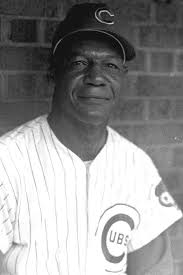
Introduction
The significance of diversity and representation in professional sports cannot be understated. In Major League Baseball (MLB), the appointment of the first Black coach marked a pivotal moment in the history of the league and is a testament to the ongoing struggle for equality in sports. This milestone not only opened doors for future generations of athletes and coaches but also highlighted the progress made since the era of racial segregation in baseball.
The Historical Context
The first Black coach in Major League Baseball was Frank Robinson. Appointed as a player-manager of the Cleveland Indians in 1975, Robinson’s role was groundbreaking as he became the first African American to hold a managerial position in MLB history. At a time when racial tensions were still prevalent in the United States, Robinson’s elevation to this role illustrated a significant shift in baseball’s approach towards diversity.
Robinson was an exceptional player and is a Hall of Famer, with a career that spanned more than two decades. He was a fierce competitor who excelled with multiple teams, including the Cincinnati Reds and the Baltimore Orioles. His coaching career would serve not only as a path for change within the MLB but also for the representation of Black individuals within the higher echelons of sports management.
Impact on Future Generations
Robinson’s appointment paved the way for numerous Black coaches and managers in the MLB, inspiring others to pursue leadership roles within the league. Despite this progress, the journey has been slow. As of 2023, there are still fewer than ten Black managers in the league, which underscores the ongoing issues surrounding racial representation in baseball.
In recent years, organizations have taken efforts to promote diversity and inclusion within their coaching staff. Various programs aimed at nurturing talent and developing minority coaches are being implemented, recognizing the importance of a diverse perspective in decision-making roles in sports.
Conclusion
The significance of Frank Robinson becoming the first Black coach in Major League Baseball resonates far beyond the diamond. His legacy reminds us of the progress still needed in terms of representation in professional sports. As baseball continues to evolve, it is vital that the industry continues to foster an inclusive environment that offers equal opportunities for all individuals. Looking ahead, the hope remains that future generations of players and coaches will benefit from Robinson’s pioneering contributions to the league, leading to a more representative baseball culture.




